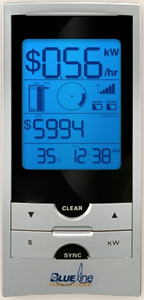In David Lereah’s new book, “All Real Estate Is Local”, he references the investment mistakes his Grandpa made by listening to the national news instead of paying attention to ”local influences and activity” He goes on to say, “Whatever the national trends are with regard to real estate – whether they are booming or busting – what really matters is what the market conditions are in your region, town, or neighborhood.” David Lereah is Senior Vice President and Chief Economist of the National Association of Realtors® (NAR).
Starting in 2001 real estate speculation began picking up steam in certain areas of the country that were growing in popularity. These areas were primarily coastal cities on the east and west coast. It would be five years before this trend would run its course. Investors were quick to jump on board with the hope of making a quick buck -- and they did. Properties were selling before a shovel touched dirt or a hammer struck a nail. We saw this in the 80’s here on Martha’s Vineyard when the construction and housing market was out of control, but we learned from that bad experience and won’t let it happen again.
When the press started reporting the news that the Boom was over, they did so by painting a national picture of doom and gloom with a broad brush. We all listened to the reports. Prospective buyers relished the thought of getting a good deal, “a steal”, and regaining control of what had been a so-called seller’s market that had all but shut out everyone except the well-healed from the Vineyard real estate market. Sellers, on the other hand, started to panic but refused to give up their position. They fervently resisted lowering what, in most cases, were overly inflated prices based upon subjective personal opinions instead of factual market price analysis provided by seller agents.
We entered a buyer-seller standoff period where nothing was happening, except at the very top of the market. But even there activity slowed down and sales were few and far between. No one wants to overspend and appear foolish regardless of how much they are worth. The wave of panic continued to build while rolling from coast to coast, and everyone was talking about a “buyer’s market” whether the perception was true or not.
On the Vineyard, sellers continued throwing chum at the market week after week in the form of insignificant price reductions. So like any good bargain shopper, buyers continued to wait, wondering how low the market would go. Personally, from the beginning I saw this as an opportunity for a leveling of the market and never believed the negative hype as it pertained to Martha’s Vineyard. Water seeks its own level and it would just be a matter of time, I thought, before we reached that point.
All of a sudden, but not by surprise, there was a new specter looming on the horizon. Was the housing bubble about to burst? Buyers had been led to believe there was no end in sight for the hot market and prices would just continue climbing. They were drawn into a false sense of security and anticipation of assumed future gains. Greed and some very creative financing products also encouraged buyers to overextend themselves by committing to attractive short-term, low adjustable interest rate loans. This enabled them to get into the market with little or no money down. But in some areas of the country the market suddenly came to a halt and prices started to decline. Frantic buyers not wanting to lose money immediately started canceling new home sales contracts and in many cases forfeiting substantial deposits.
With prices now plummeting by double digit percentages in many popular cities, and adjustable mortgage rates going up as much as double at the first reset, many new home owners found it easier to simply walk away from their homes purchased with up to 100% financed loans they could no longer afford. This was the case in cities like Boston, Cape Cod, Phoenix, Las Vegas, Los Angeles and Ft. Lauderdale where there had been overly zealous growth, but it was not that way throughout the entire country.
On Martha’s Vineyard the rate of appreciation was above average but not even half of what it was in the 1980’s. There were only a handful of speculators here that might have been in jeopardy. The Vineyard has always been a pricey market and that is not by accident. People who “get the Vineyard” are passionate about wanting to live here and make emotional decisions; quite often paying a premium to be part of the unique Vineyard lifestyle.
It was not only the home buyer who was affected by the slowdown in the market. Existing home owners who were courted and vigorously encouraged to take equity out of their existing homes for that dream vacation to Hawaii or that slick new Escalade were finding themselves in an unexpected upside-down or negative amortization position. The news of a threatened foreclosure glut loomed heavily on the horizon --- but once again we should have remembered --- real estate is local.
When a homeowner cannot maintain their mortgage or sell their home to save themselves, the end result is usually foreclosure and over a million home owners in the US are facing that end today. The foreclosure process begins when a borrower is over 30 days late with a mortgage payment. The lender will usually send a letter of notice to the borrower along with notification to the state’s Land Court notifying them of an action to foreclose. This does not imply a fait accompli, as most borrowers are able to work out the loan with the lender before they lose their homes. With prices continuing to decline in some areas, options have become more limited. However, in Massachusetts, the number of foreclosures is not even close to what it was in 1992. Government leaders are now calling for state and federal assistance to subsidize aide to home owners threatened with foreclosure.
Although Martha’s Vineyard is a wonderful and very special place, like all good things, greed can play a major part in pushing the envelope. We experienced a period for many years where everyone thought they had the goose that laid the golden egg. Many properties came on the market for ridiculous prices, both at the very top and at the very bottom of the market. Still, we relied upon the market to have the last word, but the astounding reality was that there was always someone who would pay the price. Today this is changing to a great extent not only because of the perception of a more level playing field or buyer’s market, but also because buyers are choosing to have their own agency representation.
So where are we today? I believe we are at a tipping point in the Martha’s Vineyard real estate market, but it will not be without a little more pain. One of my pet peeves is there are too many substandard, poorly maintained buildings of no important historic significance for sale here that have outlived their economic and functional usefulness. There is an old real estate expression, “underneath it all is the land”, and in many cases that is where the value is --- not what sits on the land. I maintain that many of the 40, 50 and 70 year old structures should be removed and replaced with more attractive energy efficient “Green” construction. Sellers have to realize they can no longer expect to get $400,000 to $500,000 for a property with a dilapidated house or unheated shack, when the value of the land is almost half of that selling price. Buyers need to realize they are not going to be able to “steal” properties. They must have confidence that if they pay a fair price for a property, they will have a solid investment that will appreciate in time, but not overnight.
We have to come to the realization on Martha’s Vineyard that this is not a buyer’s market, but an opportunity for a balanced market. A market where properties are priced fairly and sellers have realistic expectations. However, the lower to middle-end of the market is distorted because we still have a number of sellers who are not realistic or serious about selling their properties; they’re just fishing. Their perception of what their property is worth, albeit uninformed or ill-advised, overrides the facts. There are three phrases I constantly hear that always make me smile: “The seller is motivated”; “The seller doesn’t have to sell”, and “The price is negotiable”. What the heck does all that mean? Does it mean the motivated seller will accept well below market value or the non-motivated seller is firm on the price or will only accept above market value? Does anyone in the market today assume that prices are not negotiable?
The pool of qualified pre-approved buyers at the lower end or entry level of the Martha’s Vineyard real estate market is drying up. Lenders are adopting much stricter guidelines for buyers with limited resources and marginal credit. If you were pre-approved for a loan last year you may not be eligible for that same amount today. A larger down payment may be required and you will most likely not get a loan approval without verifying your income. If you are contemplating a purchase this year, save yourself disappointment and wasted time for everyone by going to a lender and getting pre-approved for a mortgage. Believe me, you are better off knowing your pocketbook will match your expectations. Negotiations are difficult enough today and being pre-approved will strengthen your bargaining position.
I’m the owner of SplitRock Real Estate, an EXCLUSIVE BUYER AGENCY and to paraphrase a statement from a REALTOR® sponsored national ad campaign, real estate is my life. I know my business; I study it and I’m passionate about it. My perspective is unique because I view the market from the buyer’s vantage point, and my goal is always to arrive at a fair deal. I will do my best to protect my buyer clients and will look after their best interests. My task is to educate and counsel my buyer clients so they can make informed decisions they will be comfortable with. I encourage you to begin or continue your real estate education at
www.SplitRockRE.com .
Labels: Buying Real Estate, housing bubble, Martha's Vineyard, Martha's Vineyard Real Estate, mortgage rates, Pricing Real Estate, Selling Real Estate, vacation home




